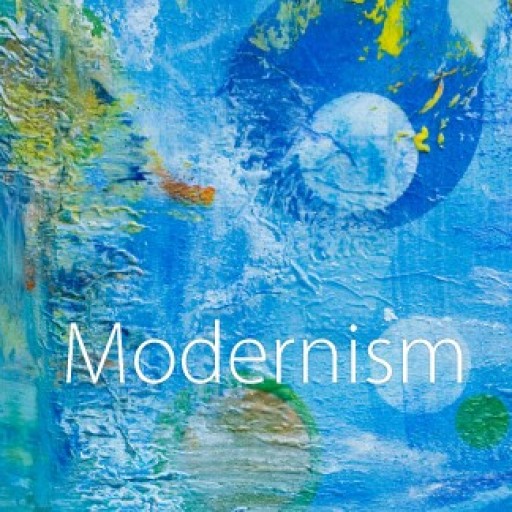The glory of Yeats’ words knows no bounds, the proof of which is the ubiquity of how they are being used in almost every artistic genre. Among many of his remarkable poems, ‘The Second Coming’ has usually been the most quoted owing to its content. As Tabor, in his blog, says: “The Second Coming” may well be the most thoroughly pillaged piece of literature in English. Since Chinua Achebe cribbed Yeats’s lines for Things Fall Apart in 1958 and Joan Didion for Slouching Towards Bethlehem a decade later, dozens if not hundreds of others have followed suit, in mediums ranging from CD-ROM games to heavy-metal albums to pornography. These references have created a feedback loop, leading ever more writers to draw from the poem for inspiration.”
In this poem, Yeats beautifully hints at the imminence of an event that would change the course of the world. Interestingly, he suggests in the poem, that the imminent change would in fact be a response to what has already been changed.
Turning and turning in the widening gyre
The falcon cannot hear the falconer;
The above mentioned opening lines of the poem allude to an abnormality in the pattern. In an ideal situation, the falconer would not keep on going in circles but would descend back to its place near the falconer. However, the lines suggest otherwise. The fact that the falcon can no longer hear the falconer means that it is the state of anarchy which generates chaos. Later in the same stanza, Yeats says:
The best lack all conviction, while the worst
Are full of passionate intensity.
Since the world, according to Yeats, has already become an imbalanced place, there is no longer a distinction between good or bad. If anything, there would be a shift in the placement of the two. It is not necessary that the structure of things would change per se, but that we might start seeing things with inverted lens.
to Yeats, has already become an imbalanced place, there is no longer a distinction between good or bad. If anything, there would be a shift in the placement of the two. It is not necessary that the structure of things would change per se, but that we might start seeing things with inverted lens.
Andrew Hazlett, a social entrepreneur and blogger, talks about the status of education in modern world in one of his lectures called “Things Fall Apart and a Terrible Beauty is Born.” The first half of the title is taken from the first stanza of “The New Coming” while the second half is taken from another of Yeats’ poems called “Easter, 1916.” Hazlett talks about the changing trends in the world of education due to modern technology. The intensity of the shifts has been so incredible in recent years that we no longer have time to engage in the intellectual activities that were glorified in the past days. With the world turning into a fast paced multidimensional techno-era, we are losing the capabilities of long intellectual discourse. Everything is being torn into pieces of bits and information and it has affected the way we perceive the world. While we gladly swallow tiny chunks of information from here and there, we no longer find time to engage in a thorough study of arguments and form our own opinions. Electronic media is taking over the print media. Hence things are falling apart.
Although the first half of the poem and Hazlett’s lecture seem to synchronize in terms of their content, it is not quite the case in the second half. Where Hazlett takes a step back, pauses and reflects on the positive changes that are brought by the technological advancement, Yeats has a disturbing vision which he has described in the following lines:
When a vast image out of Spiritus Mundi
Troubles my sight: somewhere in sands of the desert
According to Hazlett, if things keep progressing (falling apart?) the way they are: “We will see a renewed focus on the individual, on authenticity, and intimacy.” On the other hand, Yeats sees a gaze blank and pitiless as the sun in the beast of his imagination. The indifference that Yeats sees imminent in future is in clear contrast with the intimacy that Hazlett is advocating for in his lecture.
to Hazlett, if things keep progressing (falling apart?) the way they are: “We will see a renewed focus on the individual, on authenticity, and intimacy.” On the other hand, Yeats sees a gaze blank and pitiless as the sun in the beast of his imagination. The indifference that Yeats sees imminent in future is in clear contrast with the intimacy that Hazlett is advocating for in his lecture.
The name of the poem is suggestive of an event that would revolutionize the course of the world. We can say that mainly because the first coming was when Jesus came to earth as a savior for mankind. Hence there was a spiritual illusion created by the title of the poem. However, Yeats in “The Second Coming” seems to deal with a foreboding of disaster as a result of human actions. Interestingly, both writers are talking about the technological development but visualize different ramifications of it. Hazlett believes that we have the potential to take advantage of what we have based on what we know to set foot on even farther territories of human knowledge. It is in stark contrast with the imminence of horrors that Yeats finds inevitable. Where Yeats’ beast is “slouching towards Bethlehem” to potentially push us further back in time, Hazlett sees us “fearlessly going into the future.”
Sources
Yeats. B.W. The Second Coming
Hazlett Andrew (Ignite Baltimore 6): Things Fall Apart and a Terrible Beauty if Born
Tabor Nick, 2015 April 7, No Slouch Retrieved from http://www.theparisreview.org/blog/2015/04/07/no-slouch/

Leave a Reply